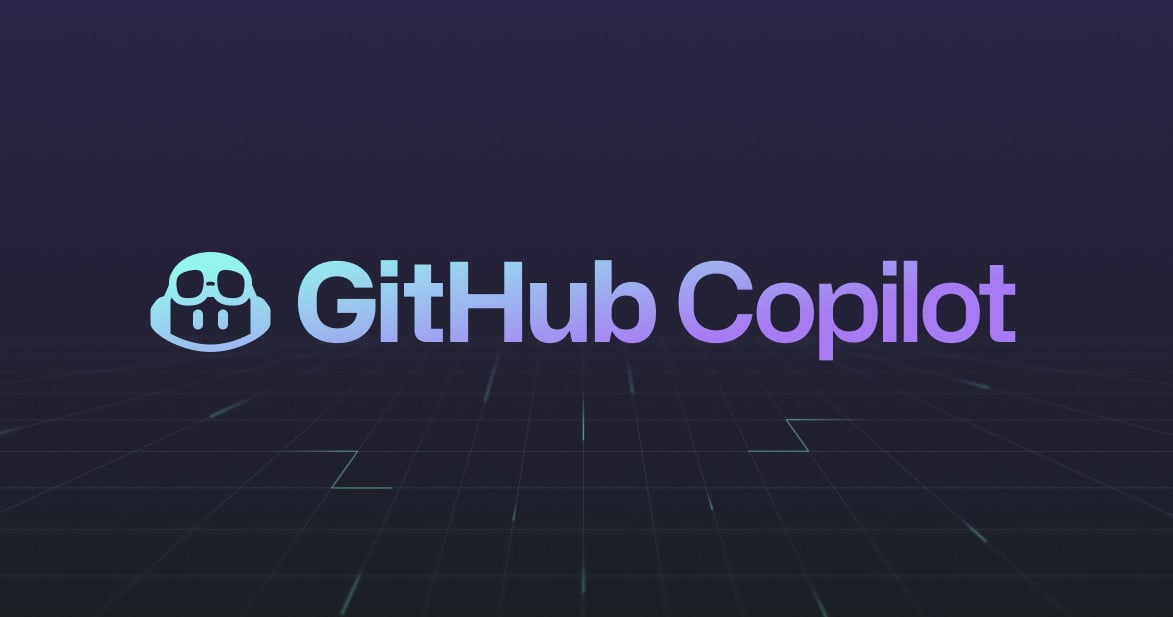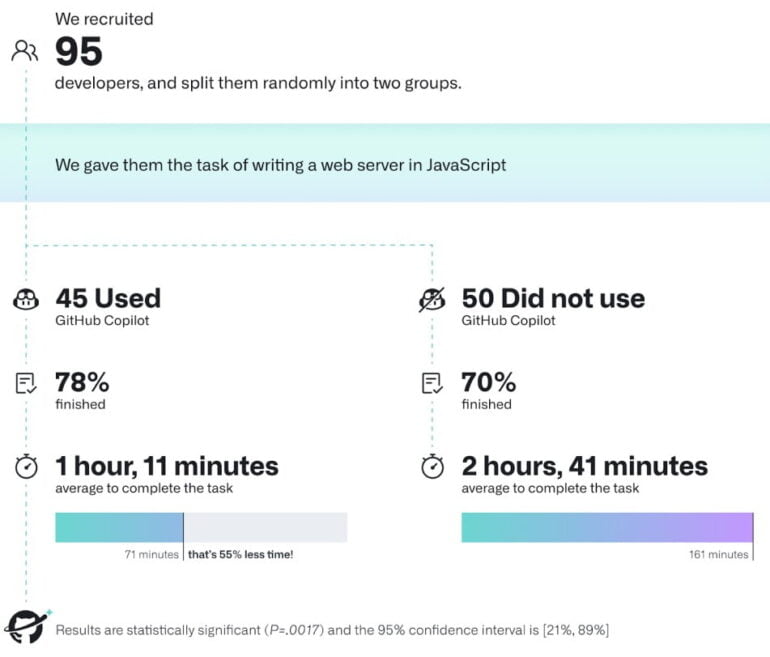Github CEO thinks AI will write majority of code in just five years

AI-supported code completion should speed up the work of programmers and free up resources for innovation.
With Copilot, Microsoft and Github released an AI assistant for programmers in the summer that can automatically complete lines of code. The AI system works similarly to AI text generators, but for programming languages.
Copilot is based on OpenAI's Codex AI model, which in turn is a code-optimized derivative of the large language model GPT-3. Even the original GPT-3 had rudimentary code capabilities, which OpenAI fleshed out with Codex.
Microsoft, which owns Github, acquired an exclusive license to GPT-3 in September 2020.
Copilot to generate 80 percent of code in five years
Now Github CEO Thomas Dohmke is giving a glimpse of usage data on Codex: among developers who have been using Codex since it went into beta later this year, the programming AI is said to have written 40 percent of the code. So for every 100 lines of code, 40 are AI-generated.
According to Github, developers are 55 percent faster with Copilot. In comparison groups, the Copilot group achieved higher task completion rates (78 percent compared to 70 percent without Github).

Dohmke expects extensive code automation
Dohmke expects "tremendous growth" for Copilot: more and more code suggestions from the AI will be accepted by developers, in part because the system learns from rejected code. Within the next five years, Copilot could write up to 80 percent of the code, Dohmke says.
Dohmke says that given these numbers, it's "mind-blowing" for management "to do the math on how much they're spending on developers."
The Github CEO sees enormous potential for savings while increasing productivity. Copilot frees up e-resources to work on higher-quality code that goes beyond rewriting existing code and helps developers better stay in the flow.
If Dohmke's predictions prove true, Codex and similar code systems like Deepmind's AlphaCode would have a significant impact on the job market, possibly making some programming jobs redundant, but also filling gaps where programmers are currently lacking.
Dohmke also believes Copilot can work with humans to generate entirely new code ideas. But innovation still requires human programmers, Dohmke says.
AI News Without the Hype – Curated by Humans
As a THE DECODER subscriber, you get ad-free reading, our weekly AI newsletter, the exclusive "AI Radar" Frontier Report 6× per year, access to comments, and our complete archive.
Subscribe nowAI news without the hype
Curated by humans.
- Over 20 percent launch discount.
- Read without distractions – no Google ads.
- Access to comments and community discussions.
- Weekly AI newsletter.
- 6 times a year: “AI Radar” – deep dives on key AI topics.
- Up to 25 % off on KI Pro online events.
- Access to our full ten-year archive.
- Get the latest AI news from The Decoder.